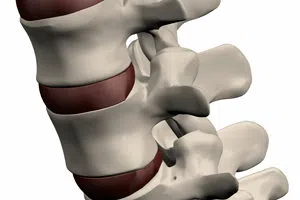Minimally invasive spine surgery (MIS) was first performed in the 1980s, but has seen rapid advances in the past few years. Technological advances have enabled spine surgeons to expand patient selection and treat an evolving array of spinal disorders, such as degenerative disc disease, herniated disc, fractures, tumors, infections, instability, and deformity.

One of the biggest downsides of traditional, open lumbar (back) surgeries is the damage that occurs from the large incision (nearly 5-to-6 inches). There are many potential sources for damage to normal tissue: the muscle dissection and retraction required to uncover the spine, the need for blood vessel cauterization, and the necessity of bone removal. In addition, disrupting natural spinal anatomy is necessary to facilitate decompression of pinched nerves and the placement of screws and devices to stabilize the spine. This may lead to lengthy hospital stays (up to five days or longer), prolonged pain and recovery periods, the need for postoperative narcotic use, significant operative blood loss, and risk of tissue infection.
MIS was developed to treat disorders of the spine with less disruption to the muscles. This can result in quicker recovery, decrease operative blood loss, and speed patient return to normal function.
Some of the potential benefits of MIS are smaller incisions (leading to smaller scars, less scar tissue and reduced blood loss), less soft tissue damage and reduced muscle retraction (often leading to less pain for the patient). In addition, MIS often leads to a decreased need for post-operative narcotics, as well as a shorter hospital stay, faster recovery and quicker return to work and physical activity.



